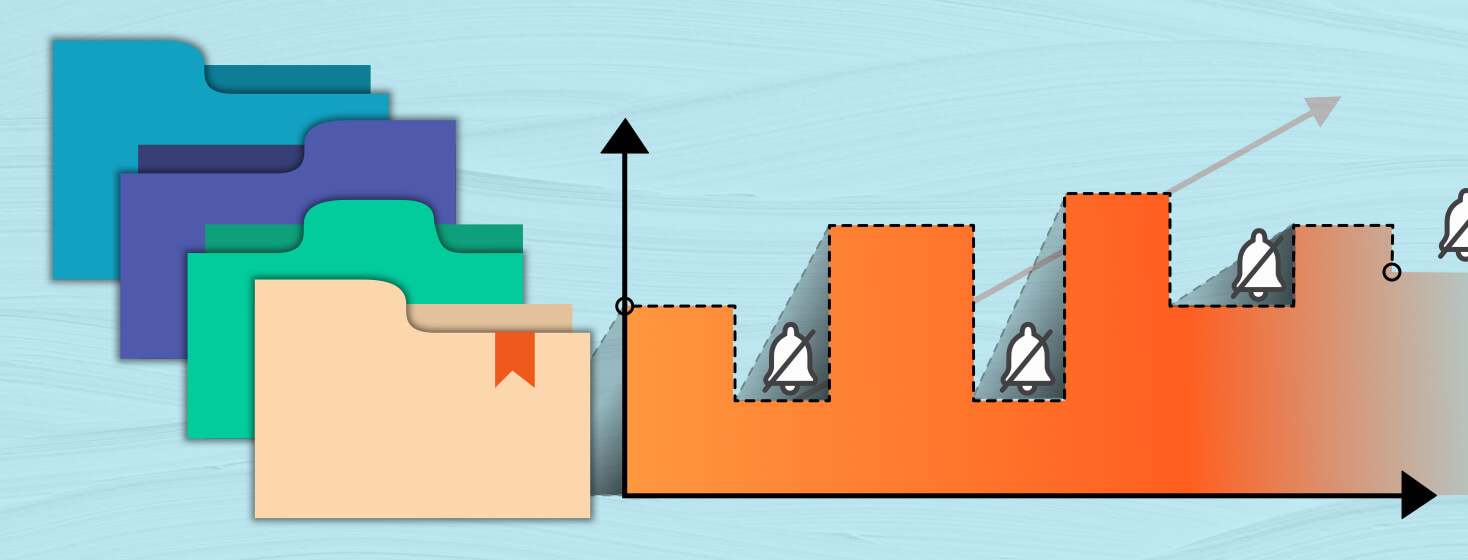MS & Progression Independent of Relapse Activity
The vast majority of those suffering from MS do so with the version known as relapsing-remitting MS (RRMS). This variety of MS is characterized by clearly defined attacks of new or worsening symptoms. These attacks are often called exacerbations, relapses, or even flare-ups, and they tend to be what most people with RRMS live in fear of.1
The time between relapses doesn't mean MS is inactive
While these events are certainly cause for concern, that doesn’t mean that you are out of the woods when you are not relapsing and everything seems fine. A recent study looked at the results of what is known as “progression independent of relapse activity” and the results may seem shocking to many people that suffer from relapsing-remitting MS.
Silent progression vs. relapse-associated worsening
Before we discuss the study, it’s important to familiarize yourself with two concepts: PIRA and RAW.
What is PIRA?
Also known as “silent progression,” PIRA stands for Progression Independent of Relapse Activity; essentially, it is the measure of disability acquired outside of relapses.2
What is RAW?
On the other hand, RAW stands for Relapse Associated Worsening and is the measure of disability gained through relapses.2 When it comes to RRMS, most people associate their level of disability with the relapses they’ve had, meaning RAW is often the greatest concern. It’s a big reason we rush to steroids when we have a relapse because we want to limit the duration of that exacerbation and thereby lessen the damage done by it.
What if our level of disability isn't just tied to relapses?
What if our level of disability isn’t completely affected by relapses? I’ve certainly met individuals with MS who haven’t had a lot of memorable exacerbations, yet are still very much disabled. A recent study published in JAMA Neurology took a look at this very issue. By looking at data from a group of MS patients in clinical trials that had accumulated disability over time and, removing the disability data associated with relapses they’d had, they discovered that patients still accrued disability independent of that gained during relapses.
Damage can occur independently of relapses
This demonstrated that the disease does progress and damage can occur independently of relapses (and again, all of these patients were classified as relapsing-remitting).3 Not only is there progression outside of relapses; progression is the primary cause of disability. To quote the study’s conclusion, “Most overall disability accumulation in RRMS is attributable to an underlying progressive disease course independent of relapse activity.”3
Should we be classifying MS differently?
The results of this study are important for a number of reasons. One, we probably need to look at re-classifying the various forms of MS, as this shows that there is still progression in RRMS even when there aren’t relapses. Those conducting the study noted, “Our study strongly supports that MS may be a single disease continuum with an underlying progressive disease course and a highly variable superimposed accumulation of disability resulting from relapses with incomplete recovery.”3 Looking at the disease in this new way may be the ticket to beating it.
Reducing relapses shouldn't be the only goal of treatment
Two, a lot of disease-modifying therapies often get judged by how they limit relapses. This study shows that, while limiting relapses is important, it shouldn’t be the only or even primary consideration when evaluating them. We need to take into account the overall health of the brain, with the level of brain atrophy being just as important as the number of lesions.
You can "look fine" while MS is working in the background
Finally, this study is important because it shows that you can appear and even feel perfectly fine, and this disease can still be progressing, even with RRMS. That’s incredibly important for people to understand, not only when it comes to treatment, but when it comes to planning for the future.
Thanks so much for reading and always feel free to share!
Devin
My Other Articles On MultipleSclerosis.net - Follow Me On Facebook

Join the conversation